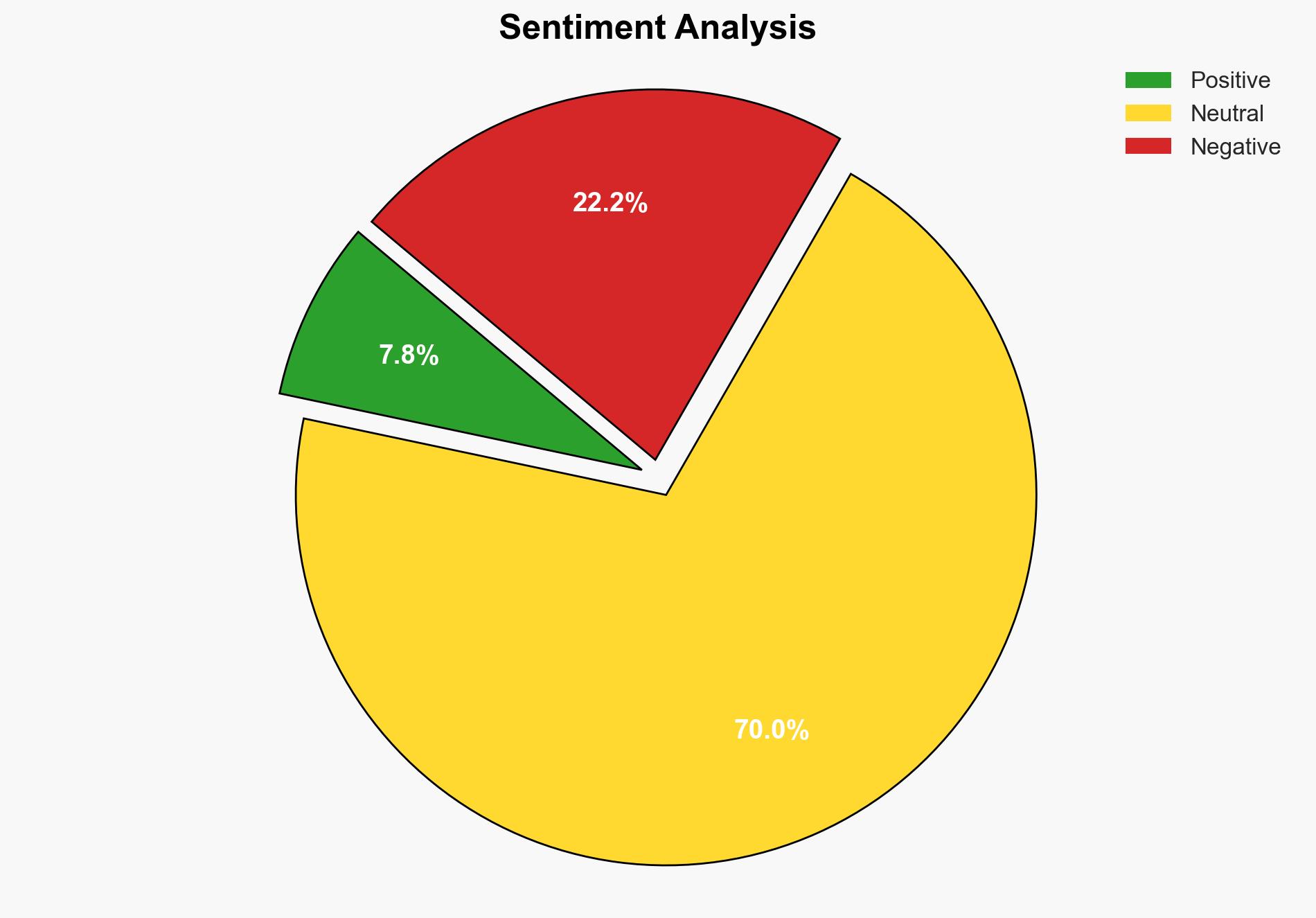Sudan takes UAE to Intl Court of Justice for Genocide A Test for Intl Justice – Juancole.com
Published on: 2025-03-16
Intelligence Report: Sudan takes UAE to Intl Court of Justice for Genocide A Test for Intl Justice – Juancole.com
1. BLUF (Bottom Line Up Front)
Sudan has initiated legal proceedings against the United Arab Emirates (UAE) at the International Court of Justice (ICJ), accusing it of breaching the Genocide Convention by supporting the Rapid Support Forces (RSF), a paramilitary group implicated in atrocities against the Masalit people in Sudan’s West Darfur region. The UAE denies these accusations. This case highlights increasing global scrutiny of the UAE’s military alliances and its involvement in regional conflicts, including Yemen and Libya. The outcome of this case could set a precedent for international justice concerning state accountability in conflicts.
2. Detailed Analysis
The following structured analytic techniques have been applied for this analysis:
General Analysis
The conflict in Sudan, particularly in the West Darfur region, has been exacerbated by the involvement of external actors, including the UAE. The RSF, originally formed from the Janjaweed militia, has been accused of severe human rights violations, including targeting the Masalit community. The UAE’s alleged support for the RSF through arms shipments and other means has drawn international criticism. The situation is further complicated by Sudan’s internal political instability following a military coup and ongoing tensions between military factions. The UAE’s broader regional actions, such as its involvement in Yemen and Libya, raise questions about its adherence to international law and its role in perpetuating conflicts in West Asia and North Africa.
3. Implications and Strategic Risks
The legal proceedings against the UAE at the ICJ could have significant implications for international relations and regional stability. A ruling against the UAE may lead to increased diplomatic isolation and potential economic sanctions. The conflict in Sudan poses risks to regional stability, with millions displaced and requiring humanitarian assistance. The UAE’s actions in other regional conflicts, such as Yemen and Libya, further contribute to instability and humanitarian crises. These developments pose risks to national security and economic interests, particularly for countries with strategic ties to the UAE.
4. Recommendations and Outlook
Recommendations:
- Encourage diplomatic engagement to de-escalate tensions and promote peaceful resolutions in Sudan and other affected regions.
- Strengthen international legal frameworks to hold states accountable for supporting armed groups involved in human rights violations.
- Enhance monitoring and reporting mechanisms to track arms shipments and other forms of support to conflict zones.
Outlook:
Best-case scenario: The ICJ rules against the UAE, leading to increased international pressure and a reduction in external support for the RSF, contributing to a de-escalation of the conflict in Sudan.
Worst-case scenario: The ICJ case is prolonged or dismissed, allowing the UAE to continue its current policies, potentially exacerbating the conflict in Sudan and other regions.
Most likely scenario: The ICJ proceedings draw international attention to the issue, leading to increased diplomatic efforts to address the conflict, though significant challenges remain in achieving a lasting resolution.
5. Key Individuals and Entities
The report mentions significant individuals and organizations but does not provide any roles or affiliations. Key figures include Khalid Ali Aleisir and Mohamed Osman. The organizations involved include the Rapid Support Forces (RSF), International Court of Justice (ICJ), and entities linked to arms shipments and regional conflicts.





